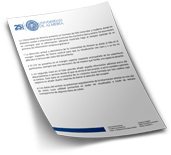Objectives and Competencies
{{pre.error[0].message}}
{{pre.error[0].message}}
This curriculum aims to ensure that students acquire the necessary skills to practice the teaching profession, according to the most accepted criteria and in accordance with the applicable legislation.
In the context of the justification for the degree, carried out earlier, it is considered that initial training should provide future teachers with theoretical knowledge, skills, attitudes and sufficient contact with the profession and its practice. in such a way that they constitute the necessary basis on which to build one's professional development. This development lasts one's entire active teaching life and is influenced by the initial training received. In this regard, it should be noted that the training programme is eminently professional, but also promotes research tasks in the field of education. This highlights the importance of the research dimension on the professional development of teachers.
We consider it necessary to influence the training of a teacher, characterized as a mediator between socio-personal development and learning, as someone able to foster the personal, scientific and cultural formation of her/his students as competent citizens who can exercise their rights and fulfil their duties in a democratic society. Therefore, we believe the basic objectives for a degree aimed at initiating future Secondary Education teachers in training to be educators should be the following:
Competencies are the identifiable and evaluable set of knowledge, attitudes, values, abilities and skills, related to each other, which will allow the student to exercise the professional activity according to the requirements and standards used in the corresponding occupational area.
All the master’s at the University of Almeria explicitly include two types of competencies:
The basic competencies for all master’s degrees were defined in R.D. 1393/2007 of 29 October. They will be progressively adapted and as established by the current R.D. 822/2021 of 28 September, which establishes the organization of university education and the quality assurance procedure.
| CB6-To possess and understand knowledge | That students have demonstrated they possess and understand knowledge that expands and improves on that associated with the first cycle, providing them a basis or opportunity for originality in developing and/or applying ideas, often in a research context. |
| CB7-Application of knowledge | That students know how to apply the knowledge gained and are capable of problem-solving in new or unexplored settings within broader (or multi-disciplinary) contexts relating to their field of study. |
| CB8-Ability to make judgements | That students can integrate knowledge and face the complexity of making judgements based on incomplete information which, being incomplete or limited, includes reflections on the social and ethical responsibilities linked to applying their knowledge and judgements. |
| CB9-Communication capacity and social aptitude | That students know how to communicate their conclusions –and the ultimate knowledge and reasons that support them– to both specialized and non-specialized audiences in a clear and unambiguous manner. |
| CB10-Learning skills | That students possess the learning skills that will enable them to continue studying in a way that will be largely self-directed or autonomous. |
The specific competencies provided by this degree are listed in the degree report.
